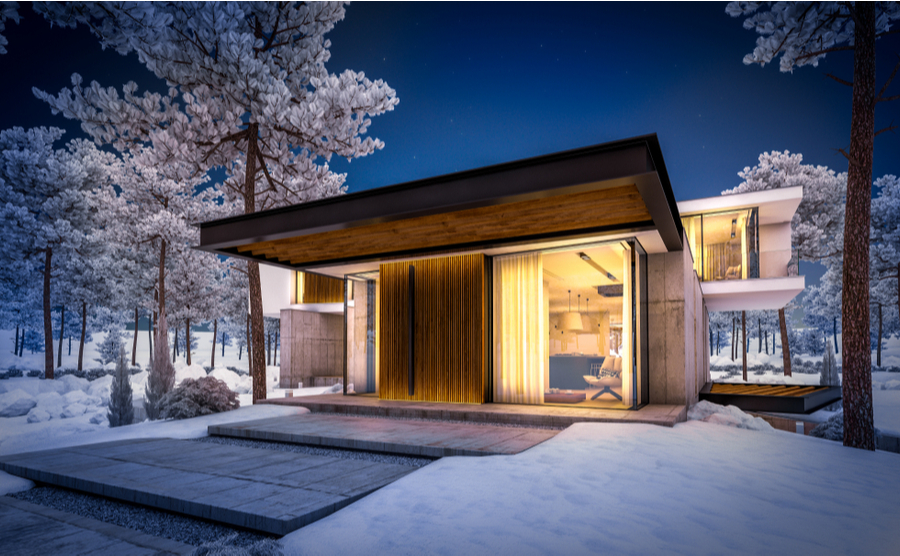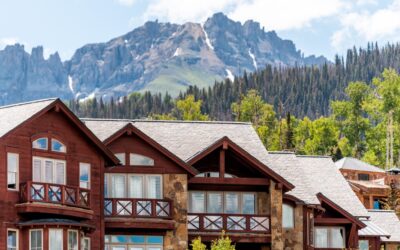Be canny and control your currency!
Top ski resorts are true international destinations with high value properties, big-ticket facilities, dynamic rental markets and a growing shift towards more permanent living. All of which means large amounts of foreign money flowing through them. So if you’re keen to join the party, give some thought to how you’ll manage your own currency transfers.
As the 2021-22 winter season sneaks up on us, Smart Currency Premier outlines why its service is especially valuable to buyers and owners of ski homes.
Mitigate currency risk
There’s no need to suffer the uncertainty of fluctuating exchange rates and their potentially adverse effects on the cost of your property purchase. Smart Currency Premier understands the value of planning and why most clients buying international homes prefer to know their total financial exposure from the outset. Their bespoke service includes understanding every client’s needs in terms of budget and currency, timescales and attitude towards risk.
A powerful tool they offer that lets you take control of costs, regardless of any movement in the currency markets, is the forward contract. This allows you to agree and lock in an exchange rate that can be applied to one or more transfers worth an agreed value of foreign currency, eg euros or Swiss francs, within a certain timeframe.
Stage payments for new build
Off-plan is a popular option for buying at the premium end of the ski market, whether it’s a high-spec apartment or custom-built chalet. Typically, this requires purchasers to make a series of stage payments during construction, which feasibly can last six months to a year, or even longer. Forward contracts are especially beneficial in this instance, allowing you to fix the cost of your payments well in advance, allowing you to budget effectively and avoid nasty surprises halfway through the build process.

Off-plan is a popular option for buying at the premium end of the ski market, whether it’s a high-spec apartment or custom-built chalet.
Note too that construction in the Alps typically takes place in the summer months only. The advantage to buyers is that during the winter you can sign a purchase contract, but not be expected to start making stage payments until construction starts in the spring. Again, this calls for forward-thinking in terms of your currency transfers.
Finance repayments
Thanks to the European Central Bank’s Euribor being stuck below zero, mortgages in the French Alps remain an attractive option, and it’s a similar story in Switzerland. In France, for example, even non-resident buyers can expect to benefit from rates fixed below two per cent for 10 or 20-year terms, requiring a 20-30 per cent deposit. Conditions don’t look set to change going into 2022.
Buying a ski home with a foreign currency mortgage can be an effective way of hedging your exposure to the exchange rate. Opting for a loan means you needn’t commit all your source funds to a foreign currency. On a broader level, it can also help maintain a level of liquidity within your wider asset portfolio. If you need to transfer currency to make mortgage repayments, Smart Currency Premier can set up regular transfers and build in a forward contract so your payments are fixed.
Rentals and maintenance
Well located ski homes are one of the most lettable types of second home. The best tend to be in high resorts, with slopes between 2,000m-3,500m and plentiful north-facing runs, with a long skiing season (early December to May – longer if there is a glacier). For those with established dual seasonality, summers are as important as winters and annual occupancy can be excellent.

Well located ski homes are one of the most lettable types of second home.
While rental income will bring money in, owners will have money going out each month to cover maintenance, as well as annual taxes. If rental income is not in the local currency, you’ll likely need to make transfers to your foreign account. This can be done ad hoc or in a more strategic way, again using forward contracts.
Well located ski homes are one of the most lettable types of second home.
New residents
Today increasing numbers of owners in the Alps are choosing to treat their home as a more permanent residence, somewhere they can spend long periods working from home and enjoying the healthy mountain lifestyle. Covid-19 and the desire to be in healthier environments, away from a busy urban lifestyle has helped drive this trend.
Moving to the Alps but maintaining an income or employment in your home country will likely bring with it the need to make regular currency transfers to cover your living costs. Meanwhile, expats moving to the Alps, notably to tax-favourable areas of Switzerland, may need to send money home for investment or other reasons.



